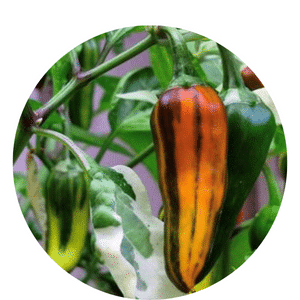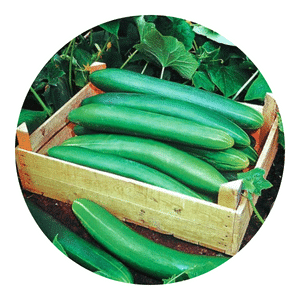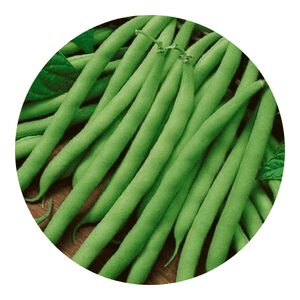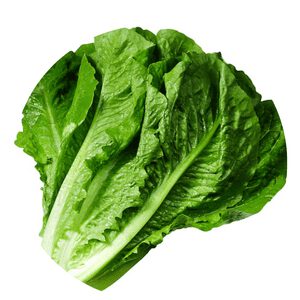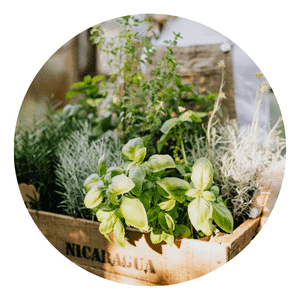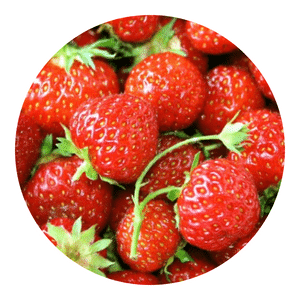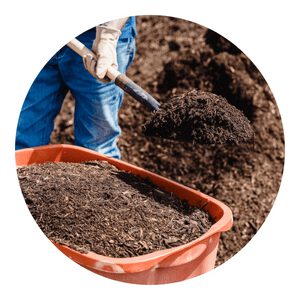Maximize Your Garden Yield in NJ: Fruits & Veggies to Plant
Gardening is a great way to enjoy the outdoors, get some exercise, and produce your own fresh fruits and vegetables.
In New Jersey, there are many different types of plants that can be grown to maximize your garden yield.
From strawberries to tomatoes, there are numerous fruits and vegetables that can be planted in NJ gardens with great success.

Table of Contents
Why New Jersey is a great place for gardening
New Jersey may be the fourth-smallest state in the US, but it’s also one of the best places to garden.
With a temperate climate and ample sunshine, New Jersey is an ideal location for growing fruits and vegetables.
Gardeners in this state are rewarded with bumper crops of nutrition-packed produce throughout the year.
Furthermore, thanks to its diverse soil types and mild winters, New Jersey provides conditions that make gardening relatively easy.
From tomatoes and peppers to eggplant and squash, there’s a variety of produce that can thrive here – making it possible for even new gardeners to have success with their gardens.
And with ample space outdoors or on decks or patios for containers or raised beds, many don’t have to worry about having enough room either!
Benefits of growing your own fruits and vegetables
Growing your own fruits and vegetables can be a rewarding experience both financially and nutritionally.
It is also an enjoyable pastime that allows you to get in touch with the earth, work up a sweat, and even have some fun with the family.
There are many benefits of growing your own produce, which include freshness, convenience, cost savings, healthier food options, and more control over what goes into your food.
Freshness is one of the most obvious advantages; you can pick ripe fruit or vegetable from your garden when needed for cooking or eating raw.
Plus there’s no need to worry about it going bad as quickly as store-bought produce does due to its shorter shelf life.
Convenience is another benefit; you don’t have to make several trips to the grocery store since everything will be right in your backyard!
Top Fruits & Vegetables to grow in New Jersey
If you’re a New Jersey resident looking to maximize your garden’s yield, you’re in luck!
From juicy blueberries to delicious cauliflower, the Garden State has plenty of options for growing fruits and vegetables.
Whether you’re a seasoned farmer or just starting out on your gardening journey, here are 10 of the best fruits and vegetables to grow in New Jersey.
Tomatoes
Tomatoes are one of the most popular vegetables to plant in a garden and are an ideal crop for New Jersey gardeners.
With its warm, humid climate and nutrient-rich soil, the Garden State is an ideal place to grow juicy tomatoes that can be eaten fresh or cooked into savory dishes.
For gardeners who want to maximize their yields, there are several different types of tomatoes that can be planted in NJ and each type has its own unique flavor profile.
Heirloom varieties are particularly beloved by New Jersey gardeners due to their sweet flavor and disease resistance.
Heirlooms come in a range of colors from yellow to purple, as well as many shapes and sizes, so it’s easy for everyone to find a favorite tomato variety.
For those looking for high yields, hybrid tomatoes may be more suitable because they tend produce larger fruits than heirloom varieties.
A gardener in NJ doth seek, To maximize their garden yield, On fruits and veggies to bestow, Variety from flower to seed. Green peppers in rows of three, Squash too for soups thick and hearty, Tomatoes for pizza can't be beat, The yield this season's sure to be pretty.
Chappy The Gardener
Peppers
Peppers are a great addition to any New Jersey garden.
Whether you’re looking for a spicy kick or something sweet, peppers come in all shapes, colors, and sizes so there’s something for everyone.
When choosing peppers for your garden, there is a wide variety to choose from.
Bell peppers are the most popular choice as they can be harvested when green or allowed to ripen into their red, yellow and orange color varieties.
Jalapeños have become increasingly popular because of their versatility and intense flavor; while sweet banana peppers add mild sweetness with some heat.
Habanero peppers bring extreme levels of heat but also lend fruity notes that make them ideal for salsas or hot sauces.
Eggplant
Eggplant is a tasty and nutritious addition to any garden.
A member of the nightshade family, eggplant can be found in many different shapes, sizes, and colors.
Eggplant is a good source of dietary fiber and vitamins B1, B6 and K. It’s also an excellent source of anthocyanins which are powerful antioxidants.
If you’re looking to maximize your garden yield in New Jersey, eggplant should definitely be on your list of fruits and veggies to plant.
When it comes to planting eggplants in New Jersey, there are a few important tips to keep in mind for success.
Choose varieties that thrive best in the climate zone you live in for optimal growth.
Zucchini
When it comes to maximizing your garden yield in New Jersey, zucchini is a great crop to consider.
This prolific vegetable is easy to grow and yields plenty of produce even for novice gardeners.
Zucchini is an adaptable plant that can thrive in most garden soils as long as they are well-draining.
When planting zucchinis, make sure they get full sun exposure and are spaced far enough apart so there is ample room for growth.
For best results, add plenty of organic matter such as compost or manure before planting to ensure soil fertility and healthy plants.
Water regularly throughout the season – especially during dry periods – and fertilizer when needed for optimal growth and harvest abundance.
Cucumbers
Cucumbers are a popular summer vegetable that can be grown in New Jersey gardens.
The warm climate of the state allows for a wide variety of fruits and vegetables to thrive, including cucumbers.
Gardeners in New Jersey will enjoy an abundant harvest if they plant cucumbers early in the season.
When planning where to plant cucumbers, look for an area with ample sun exposure and well-drained soil.
Cucumber vines need plenty of room to spread so plan accordingly when cultivating them.
For maximum yield, fertilize the soil before planting with compost or aged manure and water regularly during hot weather.
Cucumbers should be harvested when they are young and tender – this will ensure optimal flavor!
Green Beans
Fruits and vegetables are a delicious and nutritious way to maximize your garden’s yield in NJ.
Green beans, in particular, offer a wide variety of benefits for gardeners in the Garden State.
Not only are they easy to grow, but they also require little maintenance or attention once planted.
Green beans can be planted as early as late April or as late as mid-July at any point during the growing season in NJ.
They are incredibly versatile, resulting in an abundance of tasty dishes that can be cooked up with these nutritious legumes — from casseroles to salads and stir-fries.
Lettuce
Lettuce has a high water content and is packed with vitamins and minerals. It adds flavor, texture, and crunch to any salad or sandwich.
What’s more, lettuce comes in many varieties that thrive in New Jersey’s climate: Romaine, Butterhead, Crisphead (iceberg), Looseleaf, and more!
When grown correctly in the right conditions – plenty of sun and moisture – you can harvest your own fresh lettuce all summer long.
Plus, planting several different kinds at once ensures you have enough for salads throughout the season.
Get ready for healthy meals with maximum flavor by growing your own delicious lettuce this year!
Herbs
Herbs are a fragrant, flavorful addition to any garden!
Growing herbs is a great way for New Jersey gardeners to maximize their yield and make the most of the soil in their backyard or community plot.
Whether you’re looking to spice up your cooking with fresh basil or sage, create calming infusions with chamomile or lavender, or enjoy homegrown teas like peppermint, some basic knowledge can help you get started.
Herbs that thrive in our climate include parsley, oregano, dill, cilantro and marjoram.
For those who want an extra challenge and are willing to experiment with growing conditions, plants like rosemary and thyme may be more successful as well.
Peas
Peas are a popular vegetable to plant in gardens, especially in New Jersey.
Peas are full of fiber, vitamins A, C and K, folic acid and minerals such as zinc and iron.
These small green plants make a fantastic addition to any garden plot.
When planting peas in the garden you have two choices – snow peas or snap peas.
Snow peas have edible pods while snap peas have thicker more developed pods that must be shelled before eating.
Both can be planted directly into the soil once the danger of frost has passed and temperatures remain consistently above 40 degrees Fahrenheit at night.
Strawberries
Strawberries are a popular and easy-to-grow fruit in New Jersey, thriving in the state’s mild climate.
They can be planted both in the spring and late summer, so gardeners have plenty of time to take advantage for maximum yield.
As long as you provide them with plentiful sun and water, strawberries will reward you with sweet, delicious fruits that can be enjoyed fresh or used in recipes throughout the season.
When planting strawberries, opt for varieties like Chandler or Jewel which are well adapted to the local weather conditions.
These varieties work best when planted from May through July and will generally produce ripe berries by late June or early July.
To ensure a continuous crop throughout the year, stagger your plantings every three weeks until mid-July for a prolonged harvest season until fall.
Methods of Growing Fruits & Vegetables
When it comes to maximizing your garden yield in NJ, planting the right fruits and vegetables is key.
In order to ensure a successful harvest, there are several methods of growing these crops that you need to understand.
Crop rotation
Crop rotation is a simple yet effective technique used to maximize garden yields in NJ.
By rotating crops every year, gardeners create a balanced soil environment that supports healthy plants with increased harvest yields.
It also helps reduce the occurrence of pest and disease outbreaks that can damage or destroy certain crops.
Crop rotation in NJ involves planting different types of vegetables or fruits each season in the same area of your garden.
Soil fertility and nutrient availability are affected by different crop varieties, so it’s important to select plants from the same family when creating your crop rotation plan.
For example, plant tomatoes one year and peppers the following year instead of two years in a row for tomatoes.
Understanding how long each type takes to grow will help you determine which plants should be rotated out before others depending on the length of your growing season.
Companion planting
Companion planting is an essential part of maximizing your garden yield in New Jersey.
It’s a great way to provide beneficial nutrients to plants while controlling pests and ensuring plants get adequate sunlight.
Plus, companion planting can help you make the most of limited space in your garden by grouping compatible plants together that don’t need too much room or compete for resources.
By understanding which plants go well together, you’ll be able to maximize yields and ensure healthy growth for each plant type.
For instance, tomatoes and basil do well when planted together since basil helps repel some tomato pests like whiteflies, yet both don’t require much space – so you’re able to fit more into small gardens.
Other common pairings include cucumbers with peas or beans, as beans will improve the cucumber yield as well as fix nitrogen-rich soil for other nearby vegetables.
Raised Bed Gardening
Raised bed gardening offers NJ gardeners the opportunity to maximize their yields of fruits and vegetables.
This type of gardening works especially well in areas with dense clay soils or other soil conditions that are hard to work with.
Raised beds can be made from wood, concrete blocks, masonry bricks, and even hay bales stacked up to form walls; they provide an easily accessible way for gardeners to make the most out of their space.
Raised beds offer many benefits over traditional ground-level gardens, including better soil drainage and aeration, improved root growth and disease resistance.
The height of the raised bed also allows gardeners to plant crops earlier in spring because the soil warms faster than on level ground.
Hydroponic Gardening
Hydroponic gardening is an efficient way to maximize your garden yield in NJ.
This method of growing plants without soil allows for maximum control over the environment, and as a result, yields higher quality fruits and veggies.
Hydroponics is ideal for small spaces like patios or balconies; with the right equipment, you can use hydroponics to grow delicious vegetables regardless of your location or season.
With hydroponics, you have access to a wide variety of fruits and vegetables such as tomatoes, cucumbers, lettuce, peppers and herbs.
You’ll need to purchase nutrient-rich water solutions specifically designed for hydroponic systems.
Additionally, there are several types of media that you can use depending on the type of plant being grown; these include rockwool cubes and expanded clay pellets among others.
Greenhouse Gardening
Greenhouse gardening is a great way to maximize your garden yield in NJ.
It allows you to grow fruits and vegetables even when the weather outside isn’t ideal, giving you an extended growing season.
The controlled environment of a greenhouse means that pests, weeds, and other environmental factors won’t impede your harvest.
With proper planning and maintenance, greenhouse gardening can bring an abundance of fresh produce right to your own backyard!
By setting up a greenhouse in NJ, you’ll have access to a variety of common garden plants such as tomatoes, peppers, eggplants, beans and many more.
Herbs like basil and rosemary can also be successfully grown in controlled environments like greenhouses.
These plants are easy to care for and can provide months of healthy harvests with just minimal effort.
Aquaponic Gardening
Aquaponic gardening is quickly becoming a popular way to maximize your garden yield in NJ.
This sustainable method of growing fruits and vegetables requires minimal space, water, and effort while also utilizing nutrient-rich fish waste as fertilizer for the plants.
Aquaponic gardens are an ideal solution for those wanting to grow their own food in small areas, such as balconies or small patios.
This type of gardening combines aquaculture (raising fish) with hydroponic systems (growing plants without soil).
Nutrients from the fish waste are filtered by bacteria in the system and then used to feed the plants.
The water is continuously circulated throughout this closed-loop system and provides both oxygenation and a steady supply of nutrition for the plants.
Tips for Maximizing Your Garden Yield
Gardening is a great hobby for those wanting to maximize their garden yields, especially in the state of New Jersey.
With the right fruits and vegetables planted at the right time, you can get the most out of your garden all year long.
With these tips and tricks, you’ll be well on your way to growing fresh produce from your own backyard.
To start off, it’s important that you choose plants that will do well in New Jersey’s climate – such as tomatoes and peppers for warm-weather crops or potatoes and cabbage for cold-weather crops.
Planting season in NJ typically starts around mid-March with cool-season crops such as broccoli and spinach, so make sure to plan accordingly when picking which seeds to sow!
In conclusion, NJ residents can take advantage of the state’s climate and soil to maximize their garden yield.
By utilizing the advice in this article, you can grow delicious fruits and vegetables that will provide lasting health benefits for you and your family.
Start planning your garden today and get ready for a bountiful harvest!
With a little bit of effort, you can enjoy the rewards of being able to produce a wide variety of nutritious fruits and vegetables from your own garden.
Click To Grow
Helps Us Grow – Share If You Like






